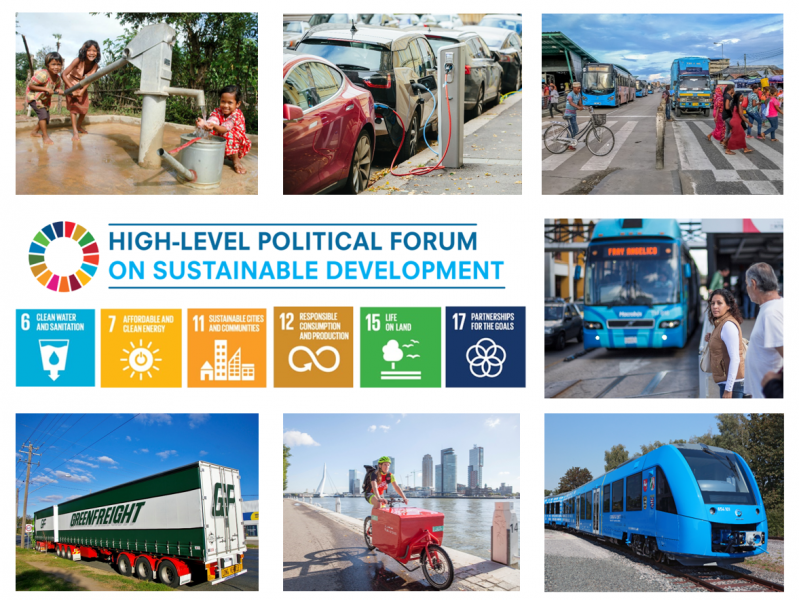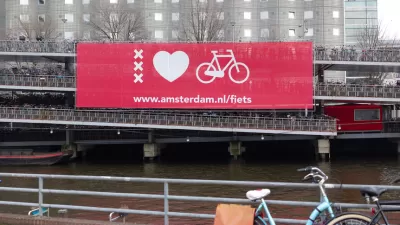Transport policy reforms help achieve many Sustainable Development Goals, including poverty reduction; access to healthcare, education, employment, and clean water; gender equality; better settlements; energy conservation; and emission reductions.
The High-level Political Forum (HLPF) on Sustainable Development is the United Nation (UN)’s central platform for the follow-up and review of the 2030 Agenda and the 17 Sustainable Development Goals (SDGs). The HLPF in 2018, held from 9 to 18 July 2018, focuses on the theme, “Transformation towards sustainable and resilient societies.” SDGs under review at the HLPF 2018 include SDG 6 (Clean Water and Sanitation), SDG 7 (Affordable and Clean Energy), SDG 11 (Sustainable Cities and Communities), SDG 12 (Responsible Consumption and Production), SDG 15 (Life on Land) and SDG 17 (Partnership for the Goals).

A key reporting mechanism within the HLPF is the Voluntary National Review (VNR) process which aims to facilitate the sharing of experiences among countries, including successes, challenges and lessons learned, with a view to accelerating the implementation of the 2030 Agenda.
Although sustainable transport is not represented by a standalone SDG in the 2030 Agenda, it is mainstreamed in a direct or indirect manner into several SDGs, especially those related to poverty alleviation; food security; access to health services, clean water, education, and employment; gender equality; energy; infrastructure; cities and human settlements; energy and food consumption, and climate change.
Since the first HLPF in 2016, the Partnership on Sustainable, Low Carbon Transport (SLoCaT) has been conducting analyses on the VNRs submitted each year. SLoCaT continued to track the references to transport in the 47 VNRs submitted to HLPF in 2018.
Final report on the 47 VNRs is now available and can be downloaded here.
FULL STORY: Showcasing the Critical Role of the Transport Sector to Achieve the Sustainable Development Goals

Maui's Vacation Rental Debate Turns Ugly
Verbal attacks, misinformation campaigns and fistfights plague a high-stakes debate to convert thousands of vacation rentals into long-term housing.

Planetizen Federal Action Tracker
A weekly monitor of how Trump’s orders and actions are impacting planners and planning in America.

In Urban Planning, AI Prompting Could be the New Design Thinking
Creativity has long been key to great urban design. What if we see AI as our new creative partner?

King County Supportive Housing Program Offers Hope for Unhoused Residents
The county is taking a ‘Housing First’ approach that prioritizes getting people into housing, then offering wraparound supportive services.

Researchers Use AI to Get Clearer Picture of US Housing
Analysts are using artificial intelligence to supercharge their research by allowing them to comb through data faster. Though these AI tools can be error prone, they save time and housing researchers are optimistic about the future.

Making Shared Micromobility More Inclusive
Cities and shared mobility system operators can do more to include people with disabilities in planning and operations, per a new report.
Urban Design for Planners 1: Software Tools
This six-course series explores essential urban design concepts using open source software and equips planners with the tools they need to participate fully in the urban design process.
Planning for Universal Design
Learn the tools for implementing Universal Design in planning regulations.
planning NEXT
Appalachian Highlands Housing Partners
Mpact (founded as Rail~Volution)
City of Camden Redevelopment Agency
City of Astoria
City of Portland
City of Laramie





























